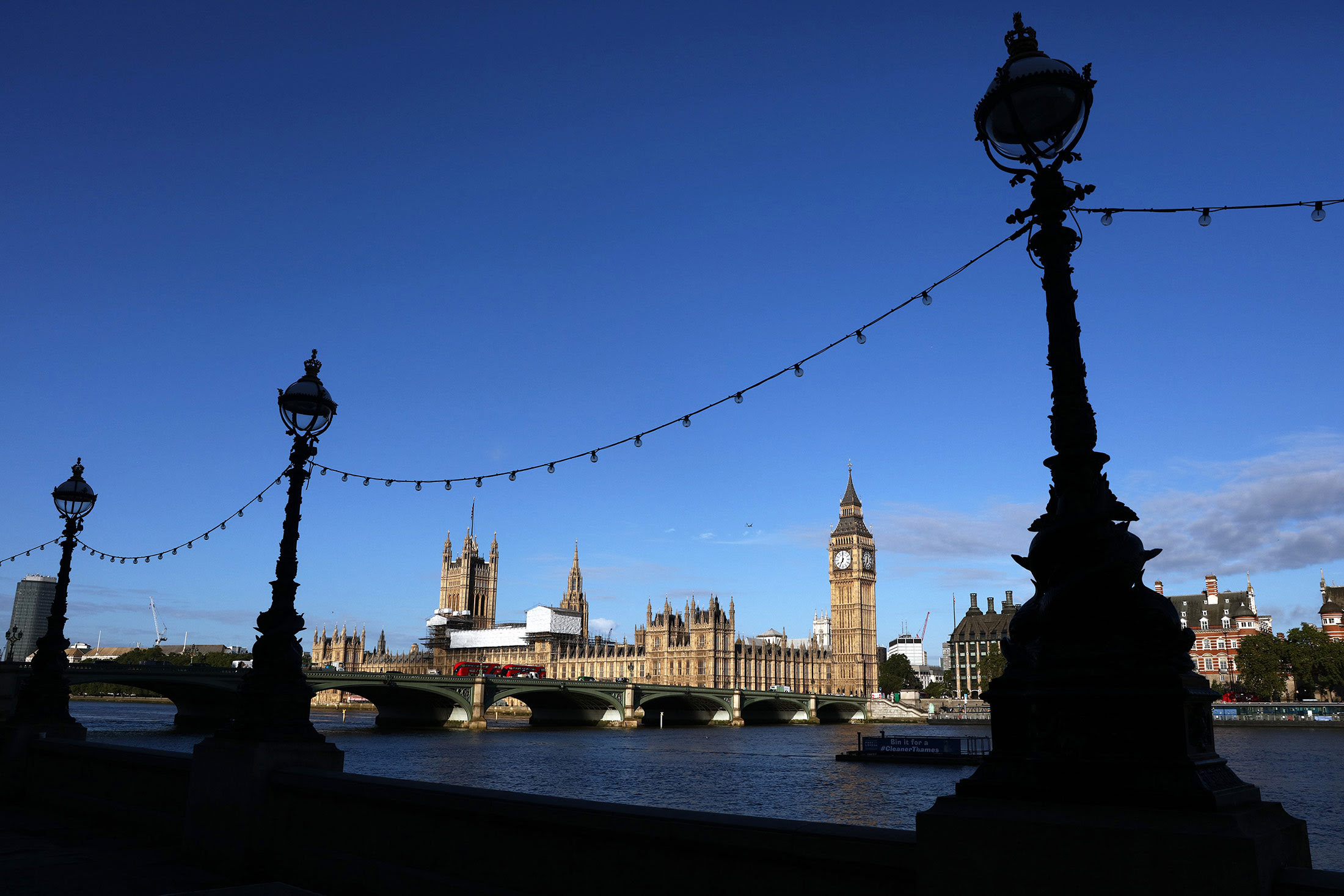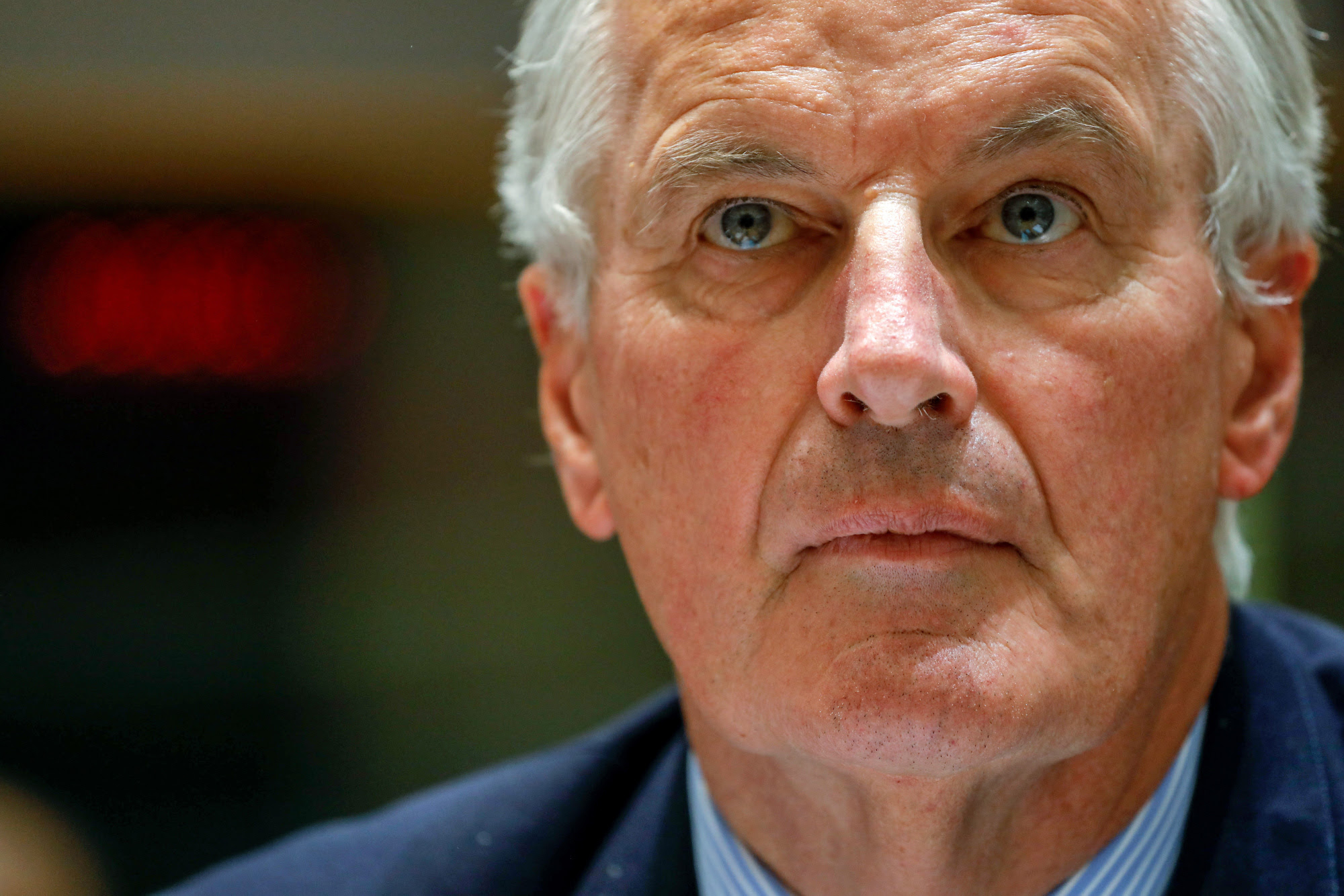Boris, Bills and Borders
As the U.K. and European Union prepare for next week’s second round of divorce talks, attention is turning back to two of the topics that will shape the success of Brexit.
Firstly, British Foreign Secretary Boris Johnson waded back into the debate over the exit bill the EU wants to impose, steering attention from Prime Minister Theresa May’s attempt to reset her premiership. He said the bloc can “go whistle” and that “the sums that I have seen that they propose to demand from this country seem to me to be extortionate.”
”

Johnson incurred further criticism for declaring there is no government plan for talks collapsing without an agreement “because we’re going to get a great deal.” May’s spokesman, James Slack, later appeared to contradict Johnson when he told reporters that “contingency planning is taking place for a range of scenarios.”
Still, in a potential boon for May, the EU and U.K. are looking to agree on the broad principles to resolve the Irish border dilemma so that the search for a solution doesn’t hold up the wider Brexit talks, according to people familiar with the matter.
Such an accord would avoid closing off options on the issue of the border between Northern Ireland and the Republic of Ireland, allowing it to be parked until later in the negotiations when the shape of a future trade deal between the two sides is clearer, the people said. That would be welcomed by May’s government, which is keen to turn the negotiations to trade as quickly as possible.
British Brexit Secretary David Davis said on Tuesday that a full plan for the border is unlikely “until the end of the process” of negotiating the split.
Davis also said the media was wrong to suggest the U.K.’s approach to the breakup had softened. “The major elements have not changed,” he said, before acknowledging Brit
ain may stay in the customs union for a transitional period.
The EU will have its say on Wednesday when negotiator Michel Barnier speaks to reporters in Brussels around noon.
Bank Warning
JPMorgan Chase Chief Executive Officer Jamie Dimon reinforced his reputation as the most outspoken banking boss on Brexit.
He warned on Tuesday that EU officials could force London-based firms to move substantially more employees abroad than currently planned if they demand additional banking operations are performed inside the bloc.
“If the EU determines over time that they want to move a lot more jobs out of London into the EU, they can simply dictate that,” Dimon said in Paris. “If regulators say one day we’re not comfortable with your risk people, your lawyers, your compliance being in the U.K. they can make us move it.”

Speaking at the same event, HSBC CEO Stuart Gulliver said his bank will still relocate as many as 1,000 London-based jobs to Paris. Societe Generale said it will move 300 to 400 jobs from the U.K. to Paris.
For more on the banking exodus, see Bloomberg’s QuickTake Q&A
Separately, five of the U.K.’s leading retail banks, including HSBC, pledged more financial support for small British exporters — with government backing — as May’s administration tries to prepare the country for life after Brexit.
Clearing Tested
The first coordinated global test showed clearinghouses, the firewalls protecting the financial system from calamity, are strong enough to survive a major bank going bust.
Regulators wanted to know what would’ve happened if there’d been a Lehman Brothers-style collapse during a market shock like that of the Brexit vote last year. So they asked three major clearinghouses to run a simulation, Bloomberg’s Will Hadfield and Ben Bain reported on Tuesday.
The test involved each clearinghouse pretending it had to auction a portfolio of debt and equity derivatives backed by billions of dollars of collateral in cash and bonds. The auctions were simulated as if taking place at the end of June 2016, during the fallout from Britain’s surprise Leave vote.
“The analysis by the authorities is not yet complete, but the results are positive,” said Erica Elliott Richardson, a spokeswoman for the U.S. Commodity Futures Trading Commission.
Brexit in Brief
And Finally…
Chancellor Angela Merkel had some words of advice for a longtime U.K. expatriate: get yourself a German passport.

The exchange between her and Robert Harrison — a British subject and longtime German resident — prompted laughter and applause at a business event in Munich when Merkel was asked about the rights of U.K. citizens living in the European Union and half-jokingly suggested that “after 25 years it might be worthwhile to put yourself on a completely safe track.”
“I don’t think you have to be worried that after 25 years in Germany, you’ll immediately be bundled off to Birmingham” when Britain leaves the EU, Merkel told the questioner who asked if whether on March 2019 the federal police “will show up at 6:30 a.m. and pick me up?”
|



Comentarios
Publicar un comentario